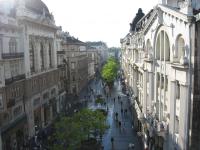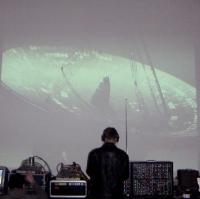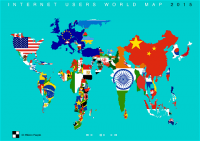- Naslovna
- B92
- Aleksandar Stojanović
- Aleksandar Vasović
- Aleksandra Mitrovic
- Ana Sofrenović
- Avram Goldmann
- Biljana Cincarević
- Biljana Srbljanović
- Božidar Đelić
- Bojana Maljević
- Branislav Kovačević Cole
- Čedomir Antić
- Đorđe Bobić
- Dejan Švajner
- Dejan Bizinger
- Dejan Restak
- Dejan Stanković
- Dule Nedeljković
- Everest 2007
- Gistro FM
- Goran Marković
- Goran Miletić
- Gordan Kičić
- Gorica Nešović
- Igor Brakus
- Ivana Konstantinović
- Ivan Marović
- Jasmina Tešanović
- Jelena Krajšić
- Jelena Milić
- Jelica Greganović
- Maja Kuruc
- Marčelo
- Marin Milosavljević
- Marko Vidojković
- Mića Marković
- Milan Lukić
- Milan M. Ćirković
- Milan Novković
- Milan Obradović
- Milica Đilas
- Miljenko Dereta
- Miloš Šaranović
- Mjehur
- Nebojša Milenković
- Nebojša Spaić
- Neven Anđelić
- Nikola Vitas
- Nune Popović
- Olga Medenica
- Olivera Vujnović
- Oto Oltvanji
- Queeria
- Rade Rakočević
- Radmila Hrnjak
- Radovan Nastić
- Ruža Ćirković
- Saša Radulović
- Sanja Perić
- Srđan Fuchs
- Srđan Kusovac
- Tamara Skrozza
- Tanja Jakobi
- Tatjana Momčilović
- Tena Štivičić
- Terorizam
- Veljko Popović
- Vesna Knežević Ćosić
- Vikipedija
- Vladan Aleksić
- World News
- Željka Buturović
- Željko Mirković
- Biografije
Jasmina Tesanovic
Internet aktivizam
Jasmina Tesanovic (30 Maj, 2006 - 09:32)Posle eksplozije u Bariču setila sam se Černobila i kako su naši političari i mediji lagali u to vreme: mene su zvali histeričnom ženom, prozapadnog feminističkog tipa jer sam verovala da radijacija postoji iako se ne vidi. Računam na sve vas koji nešto znate da postoji što se ne vidi, u akciji podrške Internetu i dole osuđenog Kineskog blogera...
Today Amnesty International and The Observer newspaper launches a campaign on internet repression... Their featured case for taking action, is Shi Tao, a Chinese journalist, who was sentenced to 10 years' hard labour for using the internet to tell people newspapers were being restricted in their coverage of the anniversary of the Tiananmen Square democracy protests. Yahoo! gave information to the authorities that was used in evidence for his conviction. There is an action on Yahoo! in the campaign, and further actions to be included periodically over the duration of the campaign. Those interested who have blogs and sites can also publicise the campaign using a neat little 'fragment' of suppressed information - a great way to undermine the very nature of censorship by spreading the content of censored sites innocuously across the globe. For those who just want to register their voice, there's the usual> pledge... campaign site http://www.irrepressible.info> articles in The Observer: http://www.guardian.co.uk/humanrights/story/0,,1784725,00.html
Da i ja kažem nešto o moru
Jasmina Tesanovic (29 Maj, 2006 - 12:58)Žale mi se drugarice da ništa svoje ne pišem na svom blogu, a ja neću da gnjavim ljude svojim dnevnim zapažanjima kad ima toliko važnih stvari na svetu koje se dešavaju i toliko super tekstova i umetničkih poduhvata. Svi oni rade i govore za mene umesto mene. Dok sam živela u Rimu sećam se kako su mnogi umetnici koji su tu došli da naprave karijeru doživljavali nešto kao "writer's block", međutim krjanje prijatan doživljaj,tipa, šta imam ja da kažem u ovakvom teatru lepote, starina, istorije, umentosti, zla i mora. Ili što Kavafi reče, hajde i ja da kažem nešto o moru (koje ode u Evropu bez nas)
» dalje | 1 komentar
No Woman is Born to Be a Whore
Jasmina Tesanovic (28 Maj, 2006 - 09:47)ARGENTINA: Women Air Society's Dirty Laundry in Art Exhibit
by Marcela Valente
BUENOS AIRES, May 25 (IPS) -- A group of female prostitutes
in Buenos Aires is using art to lay bare their situation --
that is, the state and societal abuse they endure -- to the
public.
One part of the installation features a bed smothered with
photos of a female corpse; "I used to be beautiful" is
scrawled in Spanish across the images. Others depict women
with their eyes and mouths covered with condoms, their heads
in a box of food, or definitions and comments written on
sheets and pillows.
"A red-light district is a zone of sexual exploitation,
where boundaries are defined by political and police
corruption," reads one of the phrases. Another: "I ask the
State: Why don't I have a job? Why don't I have an
education? Why am I not free to make decisions about my own
body?"
» dalje | 1 komentar
Glas razlike sa Kosova
Jasmina Tesanovic (27 Maj, 2006 - 12:24)May 26, 2006
To: Soren Jessen-Peterson, UNMIK SRSG
Copied to: Kai Vittrup, UNMIK Police Commissioner
From: Igballe Rogova, Executive Director, Kosova Women’s Network
Subject: Incident in Krusha e Vogel village, Kosovo on 25 May 2006
Dear Soren Jessen-Petersen,
I am writing to present the events that occurred on 25 May 2006, during a United Nations Mission in Kosova (UNMIK) fact-finding mission to the village of Krusha e Vogel, as a supplement to the official reports submitted by the UNMIK police. As a human rights and women’s rights activist for more than 17 years, I have worked closely with the community of Krusha e Vogel since 1999 and am well-aware of the political and social context there. Here, I will explain that context and present recommendations for future UNMIK work.
I. The Events that Occurred
Within twelve hours of the incident, I collected more than 30 personal testimonies from Krusha e Vogel citizens who were at the scene. These testimonies showed that the following occurred:
Twelve UNMIK police armored vehicles carrying Serbs who used to live in Krusha e Vogel village arrived there at 09:15 in the morning on 25 May 2006. According to Kai Vittrup, UNMIK Police Commissioner, they were there to collect information for The Hague. The convoy arrived completely unannounced, without informing elected officials, public institutions, the Kosovo Police Service (KPS), or anyone in the village that they were coming. When they arrived, an UNMIK police officer asked a young girl, Mehreme Batusha (12), where the house of the Batusha family (Albanian) was. The house was formerly occupied by the Misic family (Serb). The girl pointed to the house.
While the vehicle was stopped Nazmije Avdyli (70) saw Bora Cvetkovic and Gordana Djordjevic, two citizens who had lived in the village before the war, inside one of the vehicles. Nazmije Avdyli immediately yelled, “They are coming back!” Women, who were on their way to work in the fields (carrying pitchforks to move grass), gathered near the UNMIK vehicles when they heard her yelling.
Shpresa Shehu, a teacher, long-time activist, and leader of the village, approached the UNMIK police representatives on behalf of the women and asked if the women could speak with the passengers in the car who they believed to be their former Serb neighbors. The women wanted to ask the passengers what had happened to the bodies of their husbands and children, missing since the war. The UNMIK police officer refused their request.
Then, the women from Krusha e Vogel sat in the middle of the road, preventing the UNMIK armored vehicles from moving forward. The UNMIK police officers grabbed the women by the shoulders and arms, physically, forcibly moving them from the road. When the women struggled, the police officers began to use riot batons. The women responded by throwing stones at the UNMIK police officers and vehicles. In the meantime, men saw what was happening and came to protect the women. When the men came, some of the UNMIK police officers started their vehicles, while others continued to hit the villagers with the butts of their guns and riot batons. Then, all of the officers jumped in their armored vehicles. As they drove away, they threw tear gas from their moving vehicles at the citizens until they reached the edge of the village. They also threw tear gas near the school where children were playing during recess.
According to Prizren hospital records, 36 people were admitted that afternoon, including three men and 33 women. Of the three men, all had physical injuries. Twenty children were treated for wounds associated with tear gas. That evening, 22 adults and the children were released. On 26 May, 14 people remained in the hospital. Of these, one boy has a broken arm, and 13 women suffer from psychological trauma. They are also being treated for tear gas as well as light physical injuries that resulted from the UNMIK police. One woman is being treated for serious injuries to her kidneys after being hit in the back with a riot baton.
On the evening of 26 May, a meeting was called with Kai Vittrup at 20:00 in Krusha e Vogel village. The meeting was attended by citizens from the village, Sheremet Ahmeti – Deputy Commissioner of KPS, and Eqrem Kryeziu – Mayor of Prizren Municipality. At the meeting, Kai Vittrup said that it was not democratic for the citizens of Krusha e Vogel to use violence towards people who came to conduct an investigation. He repeatedly stressed the need for them to act “democratically” and to remember that their actions would influence the “final status talks.”
» dalje | 7 komentara
Život knjige od papira
Jasmina Tesanovic (26 Maj, 2006 - 10:21)Ne znam kako vi ostali blogeri i blogerke ali ja čitam skoro sve na internetu, od vesti do takozvane lepe književnosti i to samo ona manje lepa dela, ne znam šta mi je, ne znam da li je to dobro, ali isto to radi i moja ćerka koja doduše nikad i nije čitala knjige osim kad mora i to je onda radila s velikim naporom i izuzetno oštrim komentarima koje sam ja zadivljeno citirala .Posebno je dobro analizirala karaktere Dobrice Ćosića, nikad nije znala ko je good a ko bad guy što se kod autora podrazumevalo ali ne kod beogradskih šiparica. I ne samo to, već i telefon više ne koristim od kada postoji Skype, i sve me to daleko manje fizički materijalno i psihički košta. Jedino još ne igram internet igrice i čvrsto sam protiv ljudi koji izbegavaju prave životne igre računajući na druge da će u njihove ime nešto dobro da učine.
Life-Expectancy of Bestsellers Plummets, Finds Study
Signs of Turmoil as Publishing Industry Gathers for Annual Book Expo and Da Vinci Code Film Arrives in Theatres
» dalje
Ženska Mirovna Koalicija
Jasmina Tesanovic (25 Maj, 2006 - 09:17)Nova runda pregovora u Beču o Kosovu, kao da ne znamo da će sve da se završi arbitražom kad tad, Altisari se sprema a i mi bogami. Ako vas mrzi da čitati samo da znate da postoji Ženska Mirovna Koalicija, Žene u Crnom iz Srbije i Mreža žena sa Kosova, koja ovaj put kaže, nije reč o crkvama već o ljudskim pravima, nije reč o teritorijama već o ljudima...Pozvani su političari, da nam se priključe pod uslovom da se civilno ponašaju što će reći da ćemo ostati same...
» dalje
Muzika medija
Jasmina Tesanovic (24 Maj, 2006 - 14:50)Gordana Novaković je nekada slikala velika potresna platna u Beogradu
Evo šta sada radi u Londonu
Ona tvrdi da je uvek radila jedno te isto ali da su je u Londonu bolje razumeli
Ja tvrdim da tek kad te oteraju iz zemlje onda te ti isti razumeju
» dalje | 1 komentar
Open Democracy, da čujemo našu Vesnu na engleskom
Jasmina Tesanovic (23 Maj, 2006 - 22:06)Au revoir, Montenegro?
Vesna Goldsworthy
23 - 5 - 2006
Montenegro's vote for independence closes a political chapter in former Yugoslavia, but Vesna Goldsworthy finds that the maps of the heart are not so neatly redrawn.
I was not one of those 484,718 people who voted for or against Montenegrin independence in the referendum on 21 May 2006. In Montenegro itself, many families were themselves divided. On Sunday morning, I rang a friend from the provincial Montenegrin town of Danilovgrad to discover that her voting intentions were different from her brother's. Neither was a rabid, Ruritanian-flag waving, nationalist figure of the kind much beloved of western TV crews, and both had sound arguments in support of their chosen option. Montenegro has a proud history of independent statehood which is longer – or less interrupted – than that of the other new states in the Balkan region, but also genuine and close historic links with Serbia which made the union a compelling option in the first place.
I have harboured mixed feelings about the outcome of the vote. I was born and bred in Belgrade, as was my father, but – like so many in the Serbian capital – he has strong ancestral links with Montenegro. While my mother comes from one of those picturesque villages in the lush valley of the Morava river which are the closest Serbia has to the heartland region of southern England known as the "home counties", my father is half-Montenegrin, half-Herzegovinian. The meaning of such distinctions has been recast again and again by the flow of Balkan history, but both my paternal grandparents would have been as surprised to be told that they are not Serbian as a Yorkshireman or a Devonian woman would be at hearing that they might not be English.
My grandmother, who lived with us throughout my youth, was fiercely proud of her Montenegrin identity. She was named after Zorka, the eldest daughter of the first and the last king of Montenegro, Nicholas Petrovich, during whose reign she was born in a village on the slopes of the kingdom's Durmitor mountain in 1908. She used to kiss King Nicholas's picture if she happened to come across it in the newspapers or on the pages of the history books in our library.
Zorka's speech was peppered with phrases from the Montenegrin epic poem, Gorski Vijenac (The Mountain Wreath), the work of its great Prince-Bishop Njegos ("Oh my dark day, o my black destiny! O my wretched Serbian nation snuffed out!"). Even her prayers were Montenegrin. Whereas my maternal grandmother used to keep a small icon of the Virgin by her bedside, Zorka treasured an image of St Vasiliy, the most famous Montenegrin saint, standing proudly in front of the monastery at Ostrog, the Montenegrin holy of holies, which is carved into a steep rockside near her place of birth.
On one of my visits to Belgrade from London, I produced – just for her – a translation of Alfred Tennyson's 1877 sonnet Montenegro, written by the country's then poet laureate at the request of his friend, Liberal politician William Gladstone. Montenegro was, wrote Gladstone, a name "perhaps less familiar to the European public than that of Monaco, and little more than that of San Marino" – and yet it would have gained immortal fame had there been "a Byron to spend and be spent on its behalf". Taking on the mantle of a Montenegrin Byron, Tennyson produced verse which pleased my grandmother enormously.
"They rose to where their sovereign eagle sails,/ They kept their faith, their freedom, on the height,/ Chaste, frugal, savage, arm'd by day and night/Against the Turk" the sonnet began, to culminate in the invocation of "Great Tsernogora" with its invincible race of mountaineers mightier than any other highlander clan. No wonder granny concluded that Tennyson was a genius. She was in no doubt that Montenegrins were a superior sort of Serbs, probably descended from those remnants of the Serbian feudal nobility that survived the battle of Kosovo in 1389. To question her Serbianness would have been more than my life's worth. I grew up proud of my own Montenegrin blood and the sorts of highland legends that would put Rob Roy or Braveheart to shame.
Vesna Goldsworthy is senior lecturer in English literature and creative writing at Kingston University, London. Among her books are Inventing Ruritania: The Imperialism of the Imagination (Yale University Press, 1998) and the memoir Chernobyl Strawberries (Atlantic Books, 2005; new edition, 2006). Her website is here.
Also in openDemocracy, personal perspectives on the Serbian complex and the dissolution of Yugoslavia:
Alix Kroeger, "Bosnia's war of memory"
(21 August 2002)
Dejan Djokic, "A conflict of loyalties: 1999 and 2003" (6 March 2003)
Alexandra Kovac, "Inat" (18 November 2004)
Dusan Velickovic, "Belgrade: war crimes in daily life"
(28 June 2005)
Slavenka Drakulic, "Sudden death and the afterlife of truth"
(16 March 2006)
Julie A Mertus, "Slobodan Milosevic: myth and responsibility" (16 March 2006)
Between myth and history
The fact that my ancestral lands will again belong to three different countries, as was the case when my grandparents were born, fills me with a degree of melancholy, but I understand the reasons for these separations. My Serbian compatriots have proved equally ineffectual in the arts of war and public relations. The image of Serbia in the outside world is now such that, on the day of the referendum, a restaurant critic in the Sunday Times – hardly an authority on Balkan politics – found it amusing to observe, in a review of a Sichuan restaurant in Soho, that "the people who are most addicted to chillies are not Mexicans, Sri Lankans or Hungarians, but Serbs".
"Their consumption of insanely psycho pickled chilli", the author continued, "has nothing to do with food, it's simply part of their rudimentary, sadomasochistic bonding that involves drink, stomach ulcers and recreational pogroms". The Serbs are now collectively seen as the sort of people with whom no one would want to share a restaurant table, let alone a state.
My best hope is that, with Montenegro's departure, Serbia finds its own independence too, and turns a corner of some kind. With the right sort of action, it doesn't necessarily take long to change external perceptions. The brutal regicide in Belgrade of 1903, after which the Serbs were commonly described in the British press as the most savage people in Europe, and the British call to arms in aid of "plucky little Serbia" in 1914, were, after all, divided by little more than a decade.
Interestingly, as in every move for secession from what once constituted Yugoslavia, the Montenegrin vote was presented as a Manichean choice between Europe of light, peace and plenty and Balkan darkness. In the limbless torso of the old Yugoslav federation, Serbia and Montenegro were already asunder in all but name. With different currencies and different fiscal and economic regimes, the army and the air-control system have represented the last functioning federal organisations for many years now.
Paradoxically, what Serbia and Montenegro share is a desire to join the European Union. Indeed, Europe featured prominently on both sides in the Montenegrin referendum campaign. In striking for independence from Serbia, Montenegro is likely to find in Europe a small store of good will, and my hope is that it will use it wisely in order to join the EU as soon as it can. With a population of 680,000 smaller than that of an average English county, it can be absorbed into the EU much more easily than Serbia, which is more than ten times larger.
I can't help feeling that, as in much of east-central Europe, the European Union tends to be seen as an updated version of an earlier communist utopia ("From each according to their ability, to each according to their need"), but – for better or worse – the carrot of European integration is the best hope anyone has for long-term stability in Europe's troubled deep south.
I vaguely remember an old anecdote about an Ottoman official talking to an English diplomat after a costly British military intervention in one of the 19th-century crises du jour. "Why didn't you just bribe them all?", asked the pragmatic Ottoman, "it would have been much easier and cheaper in the long run". There's nothing wrong with a bit of European bribery.
Krv nije voda!!!
Jasmina Tesanovic (22 Maj, 2006 - 22:48)Zavod za transfuziju krvi Novi Sad uklonio sa svog sajta podatak da istopolno orijentisane osobe nisu podobne za davanje krvi Osobe koje su imale homoseksualni kontakt "ipak" su podobne za dobrovoljno davanje krvi, barem po Zavodu za transfuziju krvi Novi Sad. Naime, ovaj zavod je nakon reakcije Labrisa - organizacije za lezbejska ljudska prava, uklonio sa svog sajta podatak da osobe koje su imale seksualni odnos sa osobom istog pola nisu podobne za dobrovoljno davanje krvi. Labris pozdravlja ovaj cin uz nadu da se diskriminacija zaista nece dogadjati ni u praksi. Nakon sto je desetak aktivistkinja nevladinih organizacija, u subotu 20.
» dalje | 4 komentara
Solarna muzika
Jasmina Tesanovic (22 Maj, 2006 - 21:01) Solarna muzikaU "glamuroznom" Dortmundu gde su i ulične stolice u obliku futbalske lopte...
Solarna muzikaU "glamuroznom" Dortmundu gde su i ulične stolice u obliku futbalske lopte...
U Feniks sali , napuštenoj fabrici , danas izložbenom ogromnom prostoru, dve elektonske umetnice, jedna iz Latvije druga sa Novog Zelanda, Rasa Smite i Honor Hager, predstvaljaju solarni radio zvuk. Napuštenu vojnu antenu u Latviji preusemerile su da registruje šumova sa planeta i da ih pretvara u muziku. Ruska vojska je isprva htela sve da sruši napuštajući teritoriju, a lokalni inžinjeri bili su skeptični u odnosu na umetničke ideje.
Skidam kapu devojkama koje od tehnologije ne prave bauka a od astronomije horoskope...
Što se mene tiče od kad imam Blog a nemam državu moja adresa biće solarna tačka net...hvala Mladiću, hvala Karadžiću, hvala Koštunice, ko zna zašto je to dobro
» dalje
Suđenje skorpionima, maj
Jasmina Tesanovic (21 Maj, 2006 - 10:33)Pratim mesecima ovo suđenje,
moj prijatelj dramski pisac kaže mi, zašto te toliko ti Škorpioni zanimaju - pa meni deluju obični nasilnici koji pričaju gluposti. Meni su više od Šekspira uvek bili osim ovoga puta.
Prvi dan majskog suđenja Škorpionima, sa dva vrlo bleda svedoka.
» dalje | 2 komentara
Granta
Jasmina Tesanovic (17 Maj, 2006 - 09:52)U čaospisu Granta, moj editor kaže, ali Jasmina kako možeš da se baviš tim internetom, od čega ćeš da živiš, od čega ćemo svi da živimo...good question, od čega mi svi živimo u Srbiji na internetu Ja mudro odgovaram, važno je NE živeti od onoga što voliš da radiš Pisanje je amaterski posao, a blogovanje...to nije Literatura sa veliko K......Umberto Eko je među prvima pisao computer generated romane. bestselere koje niko nije čitao jer su bili neprohodni i predugački...danas izdavači traže knjige po blogovima...uostalom baš me briga, va
» dalje
Posle 15 godina London
Jasmina Tesanovic (14 Maj, 2006 - 09:40)je mirniji , čistiji, a bombe manje više bilo ih je i onda Juče sam prisustvovala ekslpodiranju jednog ljudskog tela kad ga je autobus udario punom brzinom, od čoveka je ostala samo mrlja zato što smo mi ljudi napravljeni uglavnom od vode, zato što smo mi ljudska bića vulnerable, kaže moja drugarica elektronska umetnica koja ovde u Londonu pravi instalaciju na tu temu, Gordana Novakovic U podzemnoj železnici upozoravaju na bombe i sumnjive ljude ali je to sve toliko British smireno da uživam Ovo je zemlja u kojoj sam na neki način odrasla dok je Srbija zeml
» dalje







Najnoviji komentari
(1 godina 32 nedelje)
(1 godina 32 nedelje)
(1 godina 32 nedelje)
(1 godina 32 nedelje)
(1 godina 32 nedelje)
(1 godina 32 nedelje)
(1 godina 32 nedelje)
(1 godina 32 nedelje)
(1 godina 32 nedelje)
(1 godina 32 nedelje)